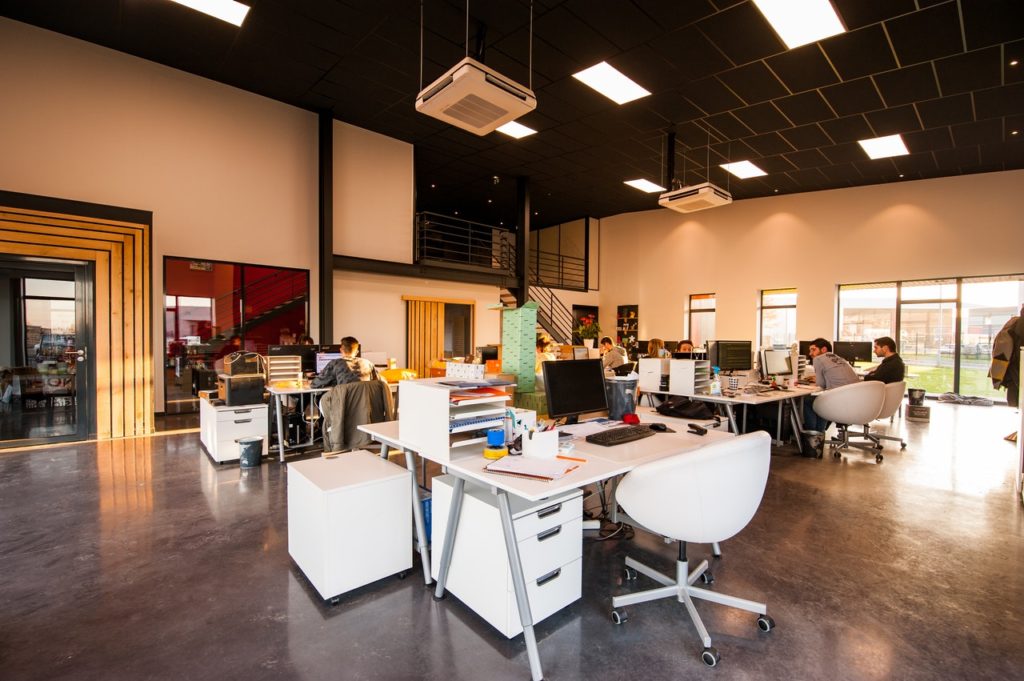Getting back to the office

Working from home has become more common over the last two years. Decades ago, when I was working in the corporate world, remote working started to be introduced and actively encouraged in many industries and sectors. The technology at the time was archaic in comparison. There were dial-up modems, security dongles to log in to the systems back at the office, heavy laptops to lug to and from.
When working from home and flexible working was introduced, being able to chose the hours you worked was a real benefit for many. Working around the ‘core’ office hours. Getting in early or later, do the school run or avoid the peak rush hour.
Even three years ago, pre-Covid, working from home was something that only happened for the few, not the many.
Then we had lockdown and it was actively encouraged. People got used to the environment of home working. While it might have taken time to adjust, most people feel happier and more productive.
After two years of going in and out of lockdown, people are being encouraged to get back to the office. Some organisations seem to think you can’t possibly be productive working from home. There’s even talk of people being penalised if they won’t return to the office.
Working from home isn’t for everyone. It isn’t possible for every role, but for those who can work from home, it's a great way to improve your productivity.
Benefits of working from home …
You can avoid the daily commute …
- Catch up on sleep! One thing people are short of and being tired impacts your productivity.
- Exercise instead and get a good start to the day
- Save money on commuting, buying food and drink while at work
- In the wider context it means less congestion on the roads and public transport at peak commuting times.
You’re less distracted by the office environment …
- Fewer people dropping by your desk for a ‘quick chat’ or “have you got a minute?”
- Less distraction from phone calls, noisy, open plan offices, water cooler/coffee machine chats
- Healthier eating when you’re not dropping by the snack machine for a quick fix.
Downside of working from home …
You can’t get away from the office …
- It’s always there in the room next door. You're likely to work longer hours or keep working because you don’t have to catch a train, bus or drive home.
- You feel more isolated not having colleagues to chat to around the coffee machine or over lunch.
You get distracted by your home environment …
- Young children, partners, house-mates at home can easily interrupt or distract you.
- Doing household chores or personal tasks instead of work.
After an initial adjustment people appreciated the benefits and flexibility of working from home.
A few myths of working from home.
You spend all day in your PJs, watching day-time TV. I hope we’ve moved on from that by now. It might have been the perception when working from home was first introduced. The majority of people I speak to, work harder and are more productive when they work from home. They're more focused, less stressed and enjoy their work more.
You can’t build real relationships unless you meet or work face-to-face. The last two years have taught us that’s not the case. We can build connection and relationships virtually that are just as successful as meeting and working in real-time.
I work with teams who are purely virtual or remote. They use Zoom, WhatsApp and online systems to connect and stay up-to-date.
You’re not as productive. You need to create a structure and routine that works for you and create a discipline and habit around working from home. When you’re able to organise your time flexibly and given the responsibility as to when and how you work, the majority of people, are more productive.
You can’t collaborate and be creative. With the technology available, it’s easier to collaborate virtually with people over Zoom, sharing ideas, documents in real-time.
There are business, interest and focus groups and online communities to both collaborate and feed on each other’s creativity.
If you thrive on other people’s energy it’s more of a challenge. A mix of remote and office working is the way to go.
The switch to hybrid working
The best ... or worst of both worlds. You go in to the office once or twice a week or possibly a couple of times a month and working from home for the rest of the time.
Managing a hybrid way of working requires adjusting your daily planning and routines. When and where you’re going to be working from one week to the next.
Your time spent in the office has different requirements and routines to when you’re working from home.
Plan accordingly. Have a list of tasks or meetings set up so when you’re in the office you do the things you wouldn’t be able to do at home and vice versa.
Avoid getting hijacked by people who want to take up your time because you’re in the office. It's easier to interrupt when they can see you. Being out of sight has it’s advantages.
As I mentioned previously, it's not for everyone but it certainly works for many more people now than it did.
Let me know in the comments - what are your thoughts and experiences of working from home. Are you still working from home or have you moved back to the office or a mix?
If you'd like tips on How To Stay Productive When Working From Home - click here.